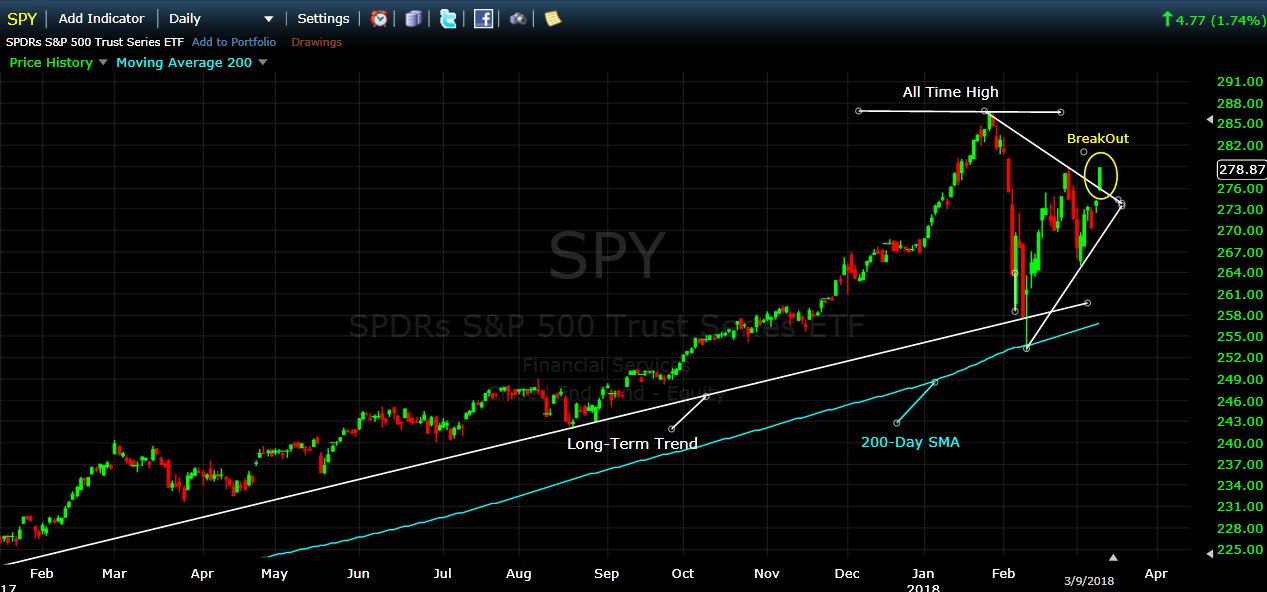Of course, everyone wants to know if the most recent "correction" was the beginning of new "bear
market", or just a scare. Let me say that, to my knowledge, there has never been a real "bear market"
without the country being in on near a "recession".
I won't bore you with the details, but by all measures the economy is very strong (growth in the GDP,
more jobs, etc.). So strong, in fact, that investors were initially worried about inflation and rising interest
rates.
I personally believe that this all began after the market that had been climbing for the last year or so
started to soar at a much higher rate and put itself in a position of being highly overbought. Of course, the
fat kats that had ridden the market up did not want to give back a single dime, so they dumped from fear
of inflation and higher interest rates in this booming economy. Then, a few days later, the fat kats who
had driven the market down by about 9% started re-buying, and the little guys joined them with their
"buy on the dips" strategy.
When the market was heading back up quickly to form a near perfect "V-Bottom" pattern, the up-tick was
reversed on a very good jobs report, because investors were sucked in by the crap from the press
claiming that the low unemployment numbers would surely lead to inflation. Then, the crap was negated
by the fact that many new jobs were filled by a small percentage of the massive number of people that had
given up hope for a job and hence were in the "not looking for a job" space. In other words, the new jobs
had not only lowered the jobless rate, but they had INCREASED the "participation level". This means that
many of the new jobs went to some of the millions of people that had given up finding a job and had run
out of gov't unemployment benefits. If this is correct, the labor force is not close to being tight.
As a result of that above, the market seems to have broken out of the current "triangle pattern" seen in
the graph below.

Of course, this does not mean that the market will reach highs in the near future. I think it will, but I am
not MIPS. To be comfortable about when to go in and get out of the market, follow MIPS.
Paul Distefano, PhD
MIPS Timing Systems, LLC
Houston, TX
281-251-MIPS(6477)